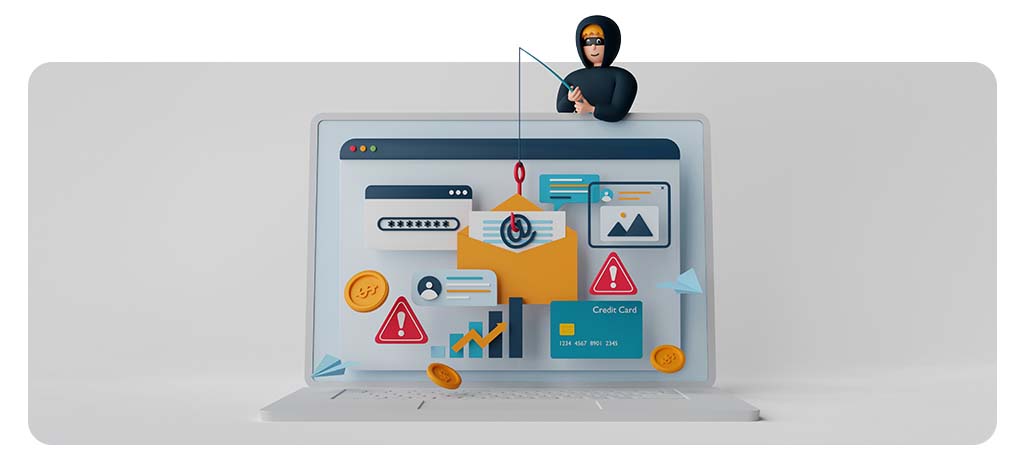The internet is flooded with websites promising quick riches, passive income, and financial freedom—but many are carefully crafted money-making website scams designed to steal your money or personal information.
As online fraud becomes increasingly sophisticated, learning to identify these scams is crucial for anyone exploring digital income opportunities. This guide reveals the warning signs, real-world scam tactics, and essential security practices to protect yourself.
- 15 iPhone Games to Earn Money with No Scams!
- Escroqueries sur Facebook Marketplace : Les signaux d'alerte à connaître
How to Recognize Money-Making Website Scams
Before investing your time—or money—into any online opportunity, it’s crucial to understand how scammers operate. Many fraudulent websites use psychological tricks and misleading tactics to appear credible.
Here are some common red flags that can help you spot a scam before it’s too late:
Too-Good-to-Be-True Promises
Fraudulent sites often lure victims with unrealistic claims:
- “Earn $10,000/month with no effort!”;
- “Guaranteed returns on investment!”;
- “Get rich overnight with this secret method!”.
Legitimate businesses, as noted by the FTC, don’t promise effortless wealth.
Lack of Transparency
Scam websites frequently:
- Hide company ownership details;
- Use fake testimonials (often AI-generated);
- Avoid providing verifiable contact information.
Utilisation Whois Lookup to check domain registration history.
Pressure to Act Fast
Fraudsters create urgency with:
- “Limited-time offer!”;
- “Only 3 spots left!”;
- “Instant payment required!”.
A legitimate opportunity won’t disappear overnight.
Real-Life Cases of Online Scam Victims
Scams aren’t just theory—they’re happening every day to people from all walks of life. Understanding real-world examples can help you recognize the warning signs and protect yourself.
Here are a few notable cases that show how online fraudsters operate in different niches:
Fake Investment Platforms
A recent BuzzFeed report exposed a Ponzi scheme disguised as a crypto trading site that vanished after collecting millions.
“Work-from-Home” Scams
Victims pay for “starter kits” or “training”, only to receive nothing in return, as warned by Scamwatch.
Fake Affiliate Programs
Fraudulent sites promise commissions for recruiting others—a classic pyramid scheme tactic.
Quick Checks to Verify Website Legitimacy
Before sharing personal or financial information online, it’s essential to verify a website’s credibility. Scammers are increasingly sophisticated, often mimicking real businesses with professional-looking sites. But with a few simple steps, you can dramatically reduce your risk of falling victim to fraud.
Start by searching for reviews on platforms like Trustpilot or the Better Business Bureau. If a website has a history of scams or poor service, chances are someone has already raised the alarm.
Be wary of sites with no reviews at all or with overly polished, suspiciously glowing testimonials.
Next, check for basic security features. A legitimate website should use HTTPS, indicated by a padlock icon in your browser’s address bar. While some scammers fake this with cheap SSL certificates, it’s still a helpful first step.
Look for tangible business information, such as a physical address and phone number. Then go a step further—plug the address into Google Maps or actually call the number. Scammers often use fake or untraceable contact details.
You can also perform a reverse image search on the site’s logo or promotional images. Many fraudulent websites steal branding from real companies, and a quick image check can expose a copy-paste scam.
For a more in-depth approach, we recommend following BayBridge Digital’s 10-point checklist, which offers a comprehensive guide to identifying red flags and confirming authenticity.

Essential Security Habits for Online Earnings
Protecting yourself from money-making website scams requires more than just recognizing red flags—it demands proactive security measures.
Implementing these key practices can significantly reduce your risk of falling victim to fraudulent schemes while exploring legitimate online income opportunities.
Maintain Separate Email Accounts
Create a dedicated email address solely for financial websites and money-making platforms. This compartmentalization serves multiple protective functions: it prevents phishing attempts from reaching your primary inbox, reduces cross-platform vulnerability if one account is compromised, and makes it easier to identify suspicious activity.
When signing up for new opportunities, always use this secondary email rather than your personal or work account.
Enforce Strong Authentication Protocols
Two-factor authentication (2FA) should be mandatory for all financial accounts and earning platforms. Opt for authentication apps like Google Authenticator or Authy over SMS-based verification, as SIM-swapping attacks can bypass text message codes.
For added security, consider using hardware security keys for your most sensitive accounts. These physical devices provide the strongest protection against unauthorized access, as noted in cybersecurity guidelines from Infosecurity Europe.
Conduct Thorough Background Checks
Before engaging with any money-making opportunity, invest time in comprehensive research. Start with a simple web search combining the company name with terms like “scam”, “complaints”, or “lawsuit”.
Expand your investigation by checking regulatory warnings from the Federal Trade Commission and consumer protection sites.
Pay particular attention to how long the website has been operational—newly created domains with extravagant promises should raise immediate concerns.
Implement Financial Safeguards
Legitimate income opportunities won’t demand upfront payments for “starter kits”, “training materials”, or “membership fees”. Treat any request for payment before you’ve earned money as a potential money-making website scam.
When testing new platforms, use prepaid cards or separate bank accounts with limited funds rather than linking primary financial accounts. This containment strategy limits potential damage if the opportunity turns out to be fraudulent.
Develop Skeptical Browsing Habits
Install browser extensions that identify known malicious websites and always verify SSL certificates before entering sensitive information.
Be wary of platforms that don’t clearly explain their revenue model—transparent businesses willingly detail how they generate profits and compensate users.
Regularly monitor your credit reports and bank statements for unauthorized activity, as some scams begin with small, test transactions before attempting larger thefts.
These security habits form a protective framework that allows you to explore online income opportunities while minimizing exposure to money-making website scams.
For additional protection strategies, our comprehensive guide to essential cybersecurity apps offers tools to further secure your digital financial activities.
Remember that in the world of online earnings, an hour of precautionary research can prevent months of financial recovery efforts.





